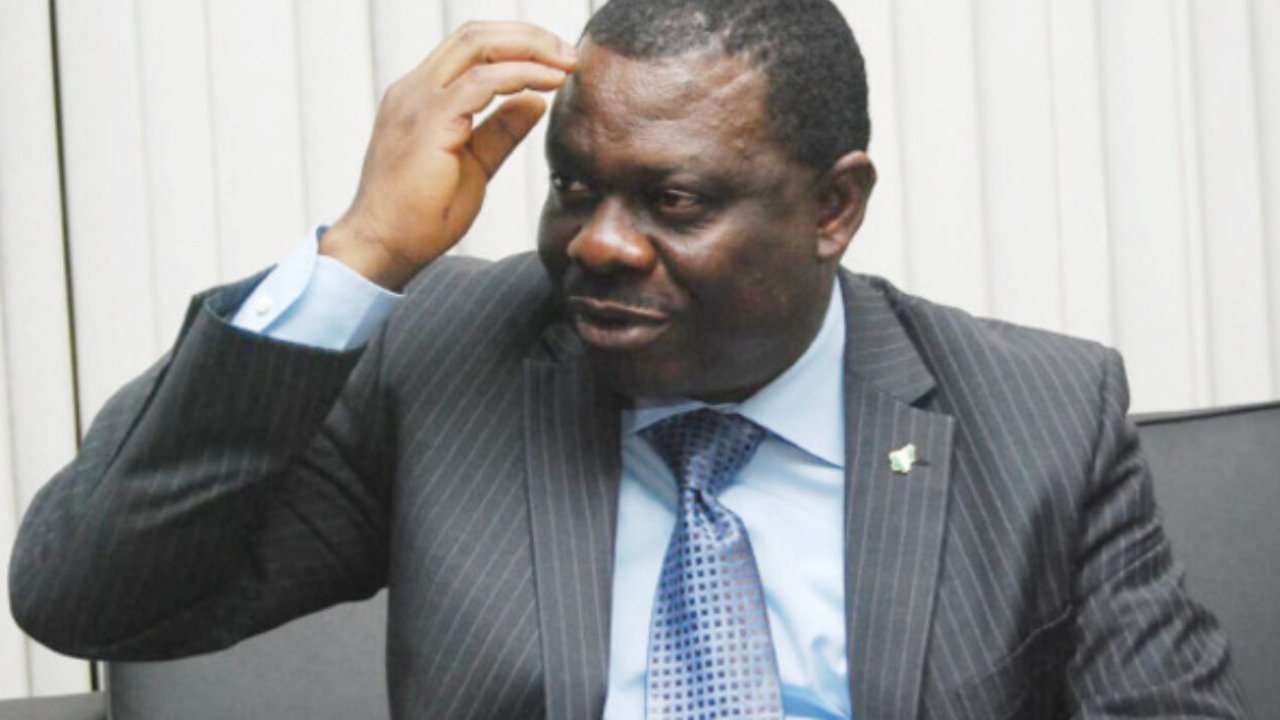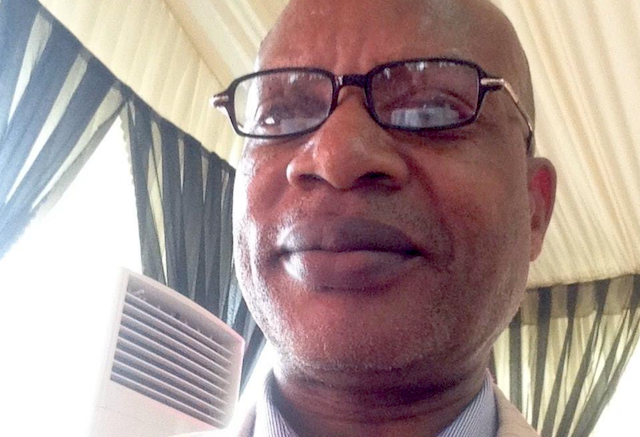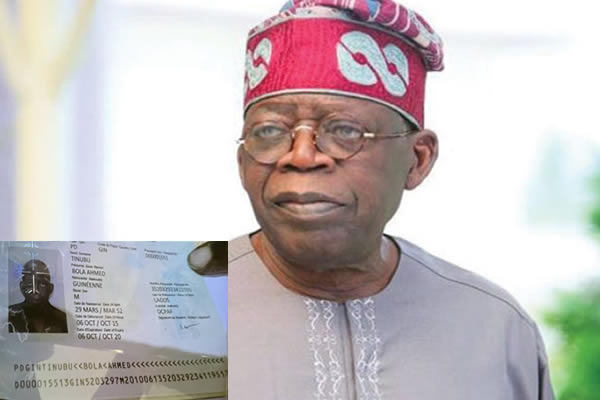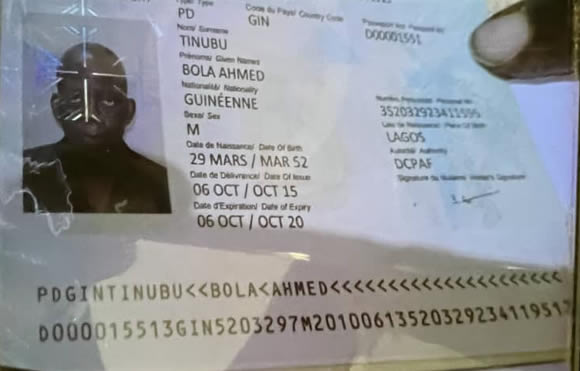Thus far in the 2023 election cycle, President-elect Bola Ahmed Tinubu has proved the proverbial cat with nine lives, as he’s dodged traps set to abort his “lifelong ambition” to be President of Nigeria.
He defeated scores of aspirants at the June 6-8, 2022, primaries of the All Progressives Congress, and tens of candidates at the February 25, 2023, presidential election.
In 35 days on May 29, Tinubu will be inaugurated as Nigeria’s 16th President and Commander-in-Chief of the Armed Forces, and make history as the first acclaimed Nigerian “political kingmaker” to become a king himself.
But how far his famed political sagacity and luck will carry him to the finish line is any pundit’s guess amid a fierce opposition that’s determined to ruin Tinubu, APC and supporters’ “pyrrhic victory.”
As millions of voters pray for a Tinubu dispensation that can reverse Nigeria’s downward slide in the socio-politico-economic and security spheres, millions more want to halt his entry into Aso Rock Villa in Abuja, and if he gained access, must be quickly evicted from the seat of power.
To achieve their aims, opposition leaders have adopted a three-prong strategy: litigation in court, mass street protests, and call for an interim government or a Military upstage of power.
Yet, Tinubu looks optimistic to easily weathering all but one or two of the pleadings at the Presidential Election Petitions Court (PEPC), and likely at the Supreme Court, which’s the final arbiter on matters relating to and/or arising from the February presidential poll.
From his reported failure to meet requirements of the laws guiding elections in Nigeria, to be declared as winner and returned elected by the Independent National Electoral Commission;
To alleged age falsification, certificate forgery, and indictment for trafficking in narcotics and money laundering in the United States in early 1990s;
Tinubu’s amassed over 100 hired and volunteer Senior and Junior lawyers to defend his declaration as President-elect of Nigeria.
But from the blue comes a fresh allegation that’s capable of finally truncating Tinubu’s political career that’s blossomed for over 30 years.
A self-styled “Investigative Journalist” David Hundeyin, who seems to possess much Intel, has accused Tinubu of dual nationality: Nigeria and Guinea, and carrying a Guinean diplomatic passport that’s on viral display on social media.
Tinubu reportedly denied in his nomination forms that he’s dual citizenship, and renounced his Nigerian nationality – a possible disqualifying violation of Section 137(1)(a) of the amended 1999 Constitution of Nigeria, and an offence of perjury.
“137(1): A person shall not be qualified for election to the office of President if–
(a) subject to the provisions of section 28 of this Constitution, he has voluntarily acquired the citizenship of a country other than Nigeria or, except in such cases as may be prescribed by the National Assembly, he made a declaration of allegiance to such other country.”
Tinubu also faces question in Section 137(1)(d) that disqualifies a person from election for the office of President if they suffer a sentence of imprisonment or fine imposed by a competent court of law or tribunal in Nigeria “for any offence involving dishonesty or fraud (by whatever name called) or for any other offence, imposed on him by any court or tribunal or substituted by a competent authority for any other sentence imposed by such a court or tribunal…”
But Tinubu may have remedy under 137(1)(e) that sanctions only a person who, “within a period of less than ten years before the date of the election to the office of President… has been convicted and sentenced for an offence involving dishonesty or he has been found guilty of the contravention of the Code of Conduct…”
To underscore the potential legal jeopardy that awaits Tinubu, let’s have some background – courtesy of www.handyvisas.com (with minimal editing) – on Dual Nationality, Diplomatic Passport and how to acquire same:
What is Dual Nationality?
“Dual nationality, also known as Dual Citizenship, means that you are a citizen of two countries simultaneously.
“Holding dual nationality can be a complicated legal status and its benefits depend on the relative two countries.
“It is important to understand how this status works, before deciding if it is beneficial for you or not.
Dual nationality definition
“If someone has dual nationality, then they are legally recognised in both countries as a citizen. They share the same rights and responsibilities as citizens without dual nationality.
As a citizen of two countries, you are legally bound by the laws of both of them.
Even if you are not residing in one of the countries, you could still have the same obligations as any citizen. For example, you may still have to legally attend jury duty or serve in the military if it is legally required.
“Sometimes, dual citizenship happens automatically. For example, in the United States, if a child is born to parents of another country, by default, they will be citizens of both the U.S. and their parents’ home country.
“Dual nationality is also often granted through legal processes, such as marriage. If someone marries a citizen of another country, they may be entitled to citizenship of their spouse’s country, and vice versa.
“Not all countries allow their citizens to hold dual nationality. It is necessary to check whether the country you are currently a citizen of allows it, before attempting to apply for a new citizenship.
“In countries that do not allow dual citizenship, citizens must surrender their nationality of that country in order to become a citizen of another country.
How to get Dual Citizenship
“If you have decided that dual nationality is right for you, then you can start the process of applying.
“In some countries, there is no specific process for becoming a dual citizen. You might simply need to apply for citizenship in the other country.
“It is very important to first check that your country of origin allows its citizens to hold dual nationality. If not, you could risk losing your citizenship in the process.
“Contacting the relevant Embassy is the best way to find out if your country permits dual nationality.”
Diplomatic Passport definition
“This type of identity document is most often used by diplomats and other government officials to journey overseas with more ease. It is also commonly used by diplomats who are stationed abroad.
“The holder can cross international borders while bypassing a lot of the typical travel regulations that regular passport holders must follow.
Clear identification as a government official
“Using a diplomatic passport means that the holder is traveling on official government business.
“Traveling with a diplomatic passport allows the holder to be easily recognised as a government official.
“Authorities are able to identify those who are on official government business, and therefore treat them accordingly.
Two Passports
“Someone with dual nationality is also allowed to hold a passport for both countries.
“This makes international travel easier, as they can choose which passport to travel with, depending on which one is more beneficial in the destination country.
Diplomatic immunity
“Those with a diplomatic passport are granted legal immunity from lawsuit or prosecution.
“There are still limitations to this immunity. A foreign diplomat is exempt from the law to a certain extent, and at the discretion of their host country.
What does a diplomatic passport look like?
“A diplomatic passport varies depending on the country of issue. Usually, it is easy to differentiate from a regular tourist passport. It is likely to be a different colour, and state the words “Diplomatic Passport” on the cover.
“The colour difference makes it easy for border officials to identify a government official and offer them the relevant privileges.
Who can apply for diplomatic passport?
“Diplomatic passports are only issued to those who have diplomatic status. It is not a document that can be applied for by anyone.
“The requirements can differ depending on the country. The type of statuses that qualify for a diplomatic passport include:
*Members of Parliament * Governors * Heads of Religious Affairs * Members of Court * Generals or Admirals * Former Presidents or Prime Ministers
Can family members apply?
“Once someone has been issued a diplomatic passport, their family members often qualify for one themselves.
“Again, this can depend on the country, but generally the benefits afforded to foreign diplomats are also extended to their immediate family members.”
Here we’re: Another roadblock – likely the most fortified to date – for President-elect Tinubu to cross before or after the May 29 handover to him by President Muhammadu Buhari! Can he dismantle this one, as others?
*Mr Ezomon, Journalist and Media Consultant, writes from Lagos, Nigeria.




